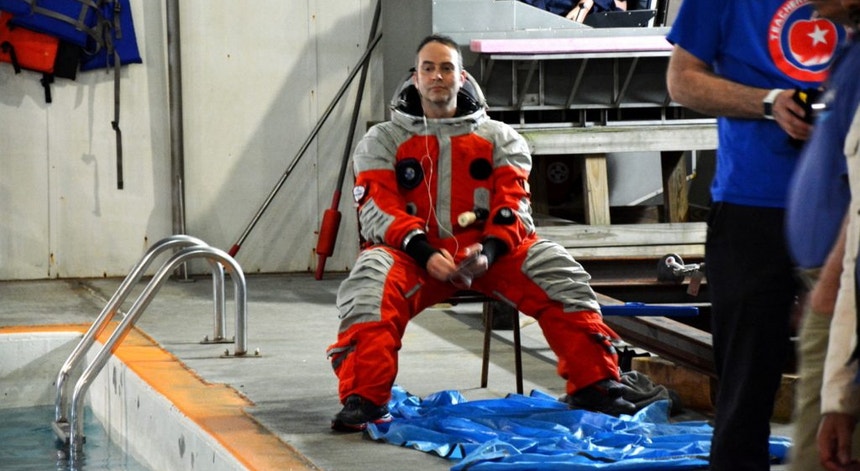The European Space Agency on March 31 opened a new astronaut recruitment process with the deadline for applications being Friday.
With a degree in geoengineering and a doctorate in geophysics, Roy Mora is over the recommended age to apply, but he’ll try anyway, hoping the ESA will reconsider. He argues that an older astronaut could be a “subject of interest” for space experiments.
Since age is not a prerequisite for nomination, the European Space Agency has set a maximum term of 50 years for each enlisted astronaut to complete at least two missions before retirement.
Roy Mora is 53 years old, has a flair and training in light flying aircraft, and has a taste for “scientific research out of the lab”. Desire to participate in scientific experiments is one of the minimum requirements required of candidates by the European Space Agency.
Lusa Roy Mora, who in 2016 attended a NASA-supported program that takes scientists to the extreme between Earth’s atmosphere and outer space to study the atmosphere (the third layer of the atmosphere). After that, the researcher trained in scientific experiments in microgravity and in planetary geology.
Combined with the “challenge” and “fascination with discovery” in a “hard-to-reach environment” with “the ambition to see “Planet Earth” from the outside,” it is also what drives the geophysicist to apply.
Among the “scientific activities” he would like to do in space, he highlights the study of how seismic waves propagate in celestial bodies with less gravity than Earth, as is the case with the Moon.
If age is an obstacle to their choice at first – he says “I have to be realistic” – then heaven is not.
Rui Mora, who teaches at the University of Porto’s Faculty of Science, is the “scientific mentor” for an experiment promoted by the Portuguese-American MIT Portugal program that aims to investigate how metal particles “collect” in microgravity, at the origin of planetary formation for example.
The unmanned flight containing the box that will allow the experiment to take place is scheduled to launch in September, in a capsule for the American airline Blue Origin, whose founder, Jeff Bezos, plans to make his first tourist flight into space on July 20.
Either way, it’s a sub-orbital flight, in which the spacecraft reaches space, but its trajectory crosses the Earth’s atmosphere without completing the full orbit of the planet.
On sub-orbital flights, Roy Mora sees a “window of opportunity” for Portugal to have, in the short term, astronauts in space other than the European Space Agency, whose recruitment campaigns have been sporadic. He pointed out the possibility of conducting scientific experiments in a flight that takes a few minutes and at a lower cost.
Aware of the dangers that space travel can entail, the geophysicist and professor “would be very proud and happy” if he could tell younger generations that “due to the scarcity of access to space,” it would be worth it to the scientist. The results obtained.

“Hardcore beer fanatic. Falls down a lot. Professional coffee fan. Music ninja.”






More Stories
The law allows children and adolescents to visit parents in the hospital.
Scientists pave the way for the emergence of a new element in the periodic table | World and Science
Can dengue cause hair loss? Expert explains how the disease affects hair